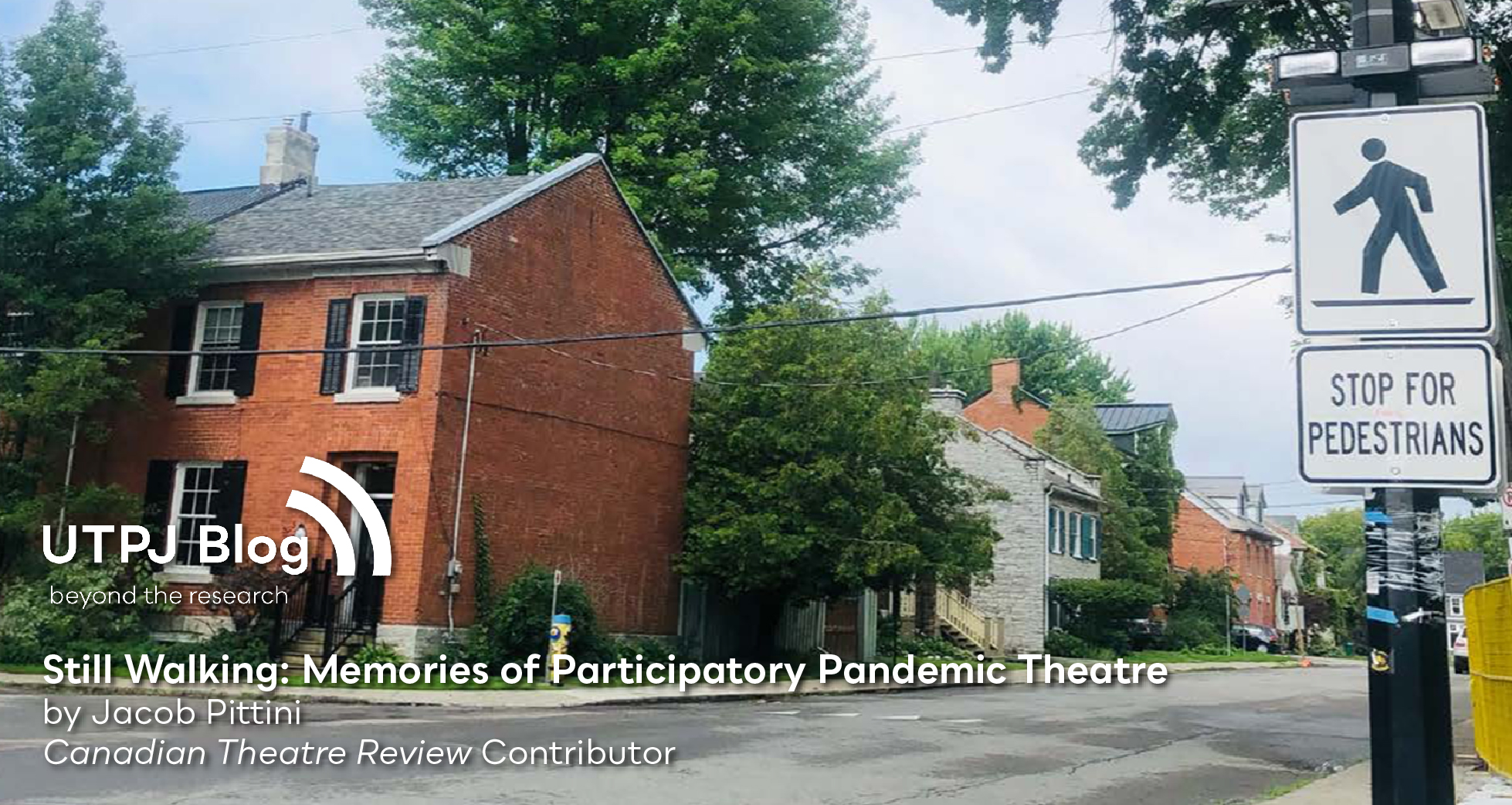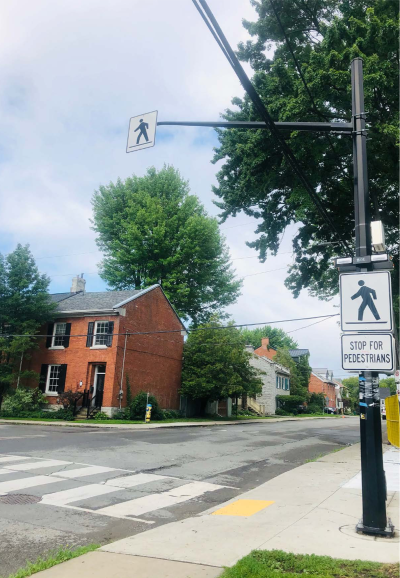
Written by guest blogger Jacob Pittini.
Somehow it has already been four years since the COVID-19 pandemic drastically changed life as we know it, including what it meant to see theatre, or even to go for a walk. Since the spring of 2020, many of these changes have gradually been reversed. For some time now I have been able to attend theatre in-person, to look around and notice countless other audience members around me. While walking I am back to sharing the sidewalk, no longer constantly moving onto the road to avoid passersby. But the way I consider how we all share space and move through it will likely never be the same.
In May of 2020 Mariah Horner and I attended Zuppa Theatre Co.’s Vista20, an app-guided walking tour designed to be done anywhere, anytime, featuring testimonials from public health workers in Halifax. Mariah and I then responded to this experience by co-authoring the article “On Being a Walking Body: Dramaturgies of Participatory Pandemic Theatre” for Canadian Theatre Review. Examining Vista20 made sense, as we were both members of a research team investigating participatory dramaturgies in Canada. I was particularly focused on how embodiment impacts participation, which was relevant to how audiences of Vista20 could access the app-guided walking tour and participate from different locations at different times yet were similarly situated in their bodies. Vista20 anchored the experience in our bodies by prompting participants to move (or not move) through space, to listen to stories from Halifax while looking around your personal surroundings. Our article’s conversational format reflected how Mariah and I discussed our parallel experiences of walking in Kingston and Toronto respectively.
 A photo of an empty street taken at a crosswalk during Vista20 in Kingston, Ontario, 2020. Photo by Mariah Horner.
A photo of an empty street taken at a crosswalk during Vista20 in Kingston, Ontario, 2020. Photo by Mariah Horner.
I concluded the article by stating “Vista20 is so contextual it forces us into an ongoing embodied awareness of what we are living through, across geographies and experiences, carrying on long beyond the show itself.” Now that it has been two years since this article’s publication, and even longer since we wrote it, I can assert that this ongoing embodied awareness of what we are living through perseveres. As Mariah Horner and I examined Vista20 dramaturgically as a piece of participatory theatre, we were also living through the pandemic and social distancing. Our experience now represents a kind of time capsule, specific evidence of how things were, both the impact of the pandemic on theatre and walking as well as how the arts respond to shared experiences.
Mariah and I were surprised by how Vista20 offered a feeling of liveness, despite the pandemic upending traditional notions of liveness in theatre such as shared space and time. Despite participating in the show in different cities, and the testimonials shared being pre-recorded, we felt a sense of liveness connected to zeitgeist. We shared Vista20 as we shared experiences of pandemic, simultaneously together and alone, and always through our bodies.
Beyond simply analyzing a walk-based piece of theatre, our research explored the embodied nature of experiences of the pandemic. Vista20 serves as an excellent example of a performance topical in both form and function, demonstrating not only how theatre companies adapted to the realities of social distancing during the pandemic, but how we all had communal yet individual, shared yet different experiences. Our analysis of Vista20 demonstrates something I love about theatre and participatory dramaturgies: their capacity to uniquely make us reconsider our shared experiences.

JACOB PITTINI is a PhD student at the University of Toronto’s Centre for Drama, Theatre and Performance Studies. Here, he is invested in co-theorizing with audiences of contemporary Canadian theatre about their drive to participate in performance events, collaboratively exploring Canadian theatre’s social potential and cultural relevance. Jacob previously completed his MA dissertation on post-pandemic theatre audience behaviour and participated in audience research projects including the SSHRC-funded “Being Together.” Jacob has shared work at conferences such as the Canadian Association for Theatre Research and the Festival of Original Theatre.
“On Being a Walking Body: Dramaturgies of Participatory Pandemic Theatre” was published in Canadian Theatre Review 189: Acts of Preservation and is Free to Read until April 8th.
Comments on this entry are closed.